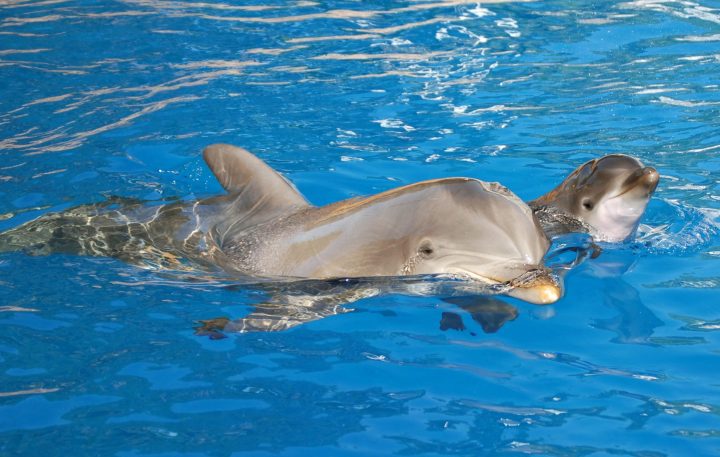TripAdvisor says that it would stop selling tickets on its platform to attractions that breed or obtain new cetaceans — aquatic mammals such as whales, dolphins or porpoises.

In a statement Wednesday, the travel booking platform said that the new policy is aimed at preventing future generations of cetaceans from spending life in captivity, noting that releasing the current population into the wild is “not a realistic option” and would endanger them further.
READ MORE: Whale and dolphin captivity banned by law in Canada
“The extensive evidence presented to us by the experts was compelling. Whales and dolphins do not thrive in limited captive environments, and we hope to see a future where they live as they should — free and in the wild,” said Dermot Halpin, TripAdvisor’s president of experiences and rentals.
“We believe the current generation of whales and dolphins in captivity should be the last, and we look forward to seeing this position adopted more widely throughout the travel industry.”
The policy was the latest addition to the company’s 2016 Animal Welfare Policy, which ended the sale of tickets to attractions that placed people in physical contact with captive animals. Examples of those activities included elephant-riding or swimming with dolphins.

In 2018, TripAdvisor and its subsidiary, Viator, also banned tickets to shows that forced animals to perform in demeaning ways, such as imitating humans and dressing up in costume.
Canadian aquariums with accreditation such as Ripley’s Aquarium and Vancouver Aquarium would not be affected, as a bill passed last June already set into effect a ban against obtaining or breeding new marine mammals. The bill, however, would not affect animals already in captivity.
However, TripAdvisor’s announcement would affect some aquariums outside of Canada, such as SeaWorld.
READ MORE: Protesters blast Vancouver Aquarium after captive belugas shipped to Spanish park it operates
In a statement to Global News, SeaWorld said that they are disappointed by TripAdvisor’s decision in that it “ignored the educational value and conservation mission of professionally accredited zoos and aquariums.”
“And regardless of TripAdvisor’s position, SeaWorld will continue to advance education and animal conservation efforts along with our millions of supporters, professional scientists and other science based organizations around the world,” said Dr. Chris Dold, SeaWorld’s chief zoological officer.
Seaworld faced heavy criticism before over the captivity of its animals and the shows in which they perform. The marine park became the target of animal conservation groups after the release of “Blackfish,” a 2013 documentary on its treatment of captive orcas.
The Association of Zoos & Aquariums also issued a statement in response to TripAdvisor’s announcement.
“TripAdvisor is letting voices of a radical minority dictate corporate policy, rather than listening to the voices and preferences of their customers,” said AZA President and CEO Dan Ashe.
“TripAdvisor is going down the same path as Thomas Cook and should take a close look at what happens to businesses that put extreme opinions ahead of informed customers.”

Meanwhile, animal rights activists and conservation groups — some of which were consulted on the policy — applauded TripAdvisor’s decision.
“This sends a clear message to other travel companies that we must end this cruel industry once and for all,” said World Animal Protection’s global head of wildlife and dolphins, Nick Stewart.
“Together we can ensure this is the last generation of dolphins held captive for entertainment.“
- Stuck in B.C. lagoon for weeks, killer whale calf is finally free
- Invasive strep: ‘Don’t wait’ to seek care, N.S. woman warns on long road to recovery
- T. Rex an intelligent tool-user and culture-builder? Not so fast, says new U of A research
- Nearly 200 fossil fuel, chemical lobbyists to join plastic treaty talks in Ottawa




Comments